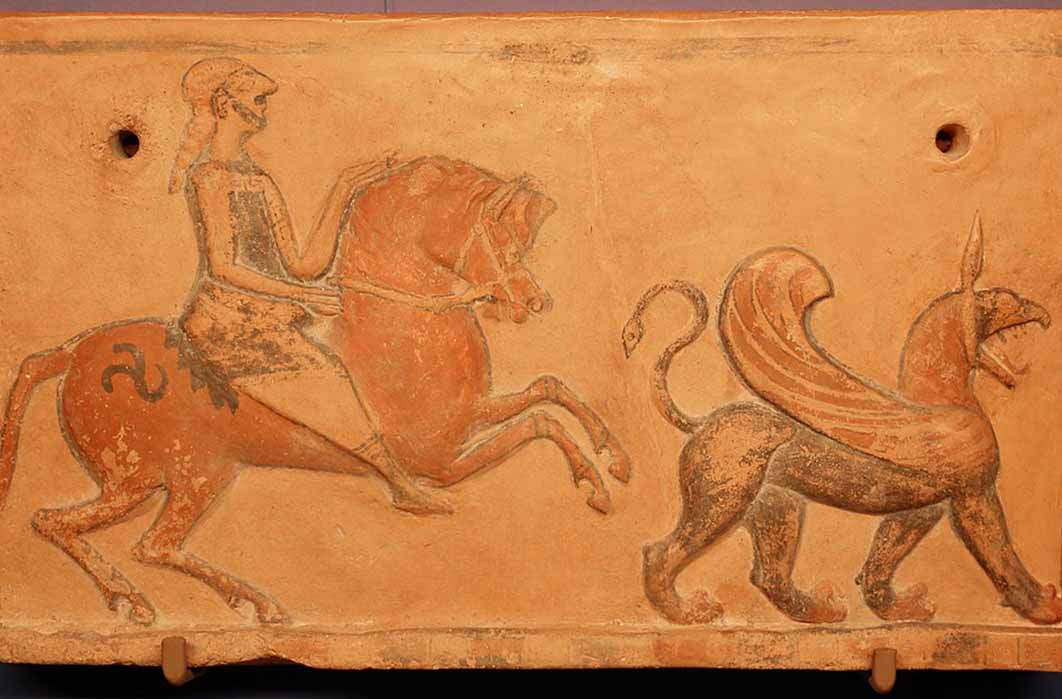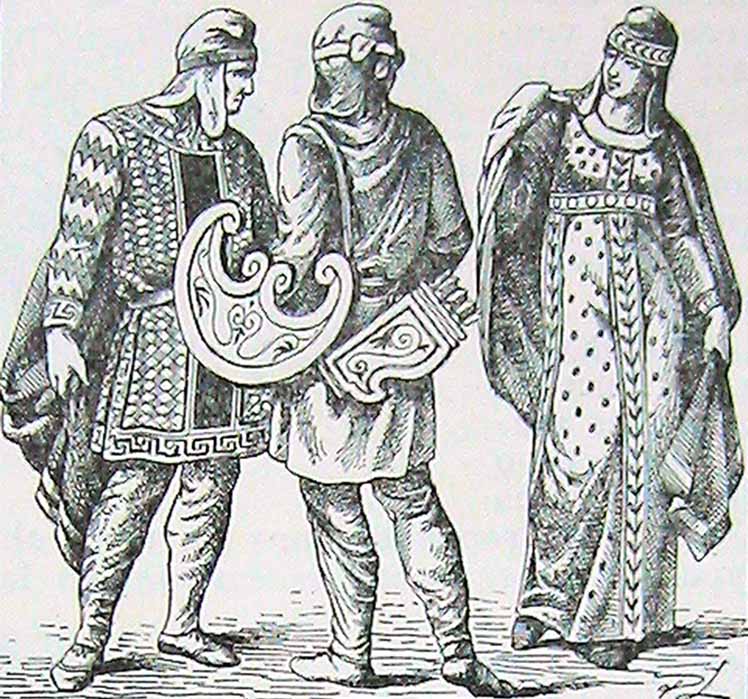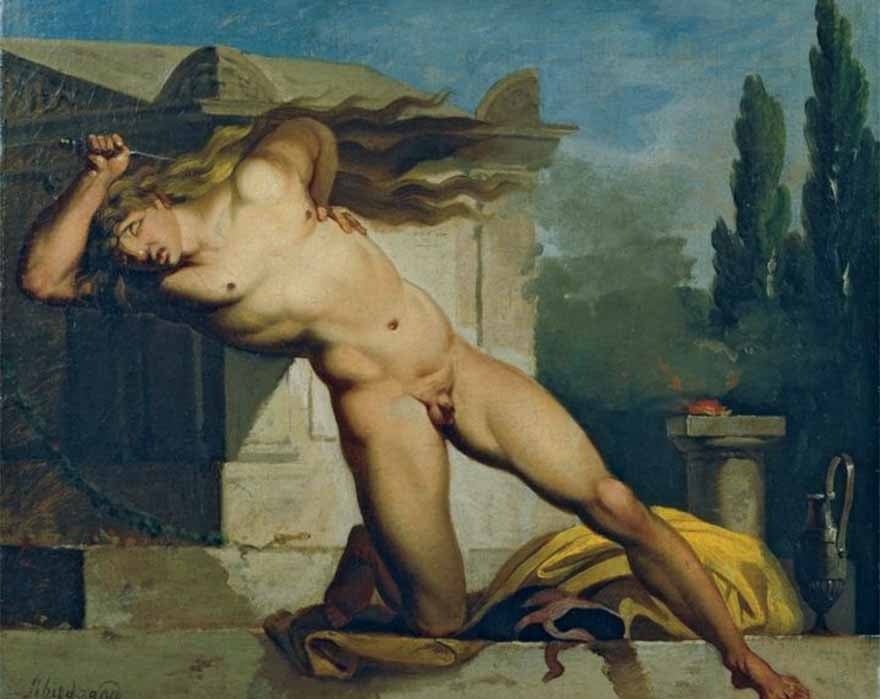
Anatolia’s Mighty Phrygia, The Kingdom Of Myth And Midas
In the western-central arid heartland of ancient Anatolia, the river Sangarios snaked through the ancient Iron Age Kingdom of Phrygia, once a rival to Assyria in the south-east and Urartu in the north-east for domination of the region. The name ‘Phrygia’ is usually associated with Alexander the Great cutting the famous Gordion Knot; as well as King Midas, the tragic greedy king, who touched his daughter and turned her into gold; and in Homer’s Iliad, Hecuba, queen of Troy’s King Priam, was a princess of Phrygia. Yet the mythical history of this once mighty state reaches further back to the pre-Deluge. In the eastern region of Phrygia, at Iconium, once resided an ancient King Annacus, who lived to be 300 years old and at the end of his reign, ‘a great flood drowned the land’. But from the dredges arose another great king, Mannis, whose energetic exploits were so great that the term “manic” derives from his name. Not much is known about the interregnum between King Mannis and the legendary King Gordias, founder of Gordion and a dynasty of Phrygian kings.

Sketch of Phrygians by unknown artist. (Public Domain)
King Gordias And The Gordion Knot
Somewhere between 1200 to 800 BC, at the collapse of the Bronze Age and the entry of the Iron Age, the Macedonian tribe of Bryges migrated to Anatolia. The last of the Bryges royal line was the impoverished Gordias, who by the second millennium BC, travelled to Telmissus on his ox-cart, there to consult the oracle at the sanctuary of Sabazios, the Thracian sky-god, a nomadic horseman god, who wielded his staff of power. On his way, an eagle came to land on the pole of his cart and Gordias interpreted the omen that he would one day reclaim his rightful inheritance and become a king. At the gates of the sanctuary, he met a sibyl priestess who advised him on a suitable sacrifice and he asked her to marry him. Meanwhile the Phrygians, who were out of a king, were gathered inside the temple asking the oracle for a solution to their conundrum. As fortune would have it, they were informed the first man to drive up to the temple in an ox-wagon would become their king, just as Gordias and his prophetess were approaching on the ox-wagon. King Gordias founded the city of Gordion on the banks of the Sangarios river as his new capital and tied his ox-wagon to a pole in a temple on the acropolis, with the now-famous Gordion Knot.

Alexander the Great Cutting the Gordian Knot by Jean-François Godefroy (1767) (Public Domain)
Roman historian Quintus Curtius Rufus described the knot as comprising "several knots all so tightly entangled that it was impossible to see how they were fastened”. The sky god Sabazios was considered a hybrid of Zeus and Dionysos and some historians such as Robert Graves suggested the knot may have represented the ineffable name of Dionysus, knotted like a cypher, guarded by priests and priestesses and revealed only to the kings of Phrygia. Alexander the Great must have considered himself a descendant of this royal bloodline, since King Gordias originated from Macedonia. By the time Alexander arrived, Phrygia was a satrapy of the Persian empire, but the ox-wagon with the knot was still standing in Gordion and the oracle stated who-ever could undo the knot would become the ruler of all of Asia. The legend that Alexander had sliced the knot in two with his sword, was disputed by Plutarch who reported that Alexander had pulled the linchpin from the yoke, which revealed the ends of the knot and enabled him to untie it. Alexander fulfilled the prophesy and conquered Asia.
King Gordias’ family was not without tragedy. He had a son called Adrastus, who had accidently killed his brother and was exiled by his father. According to Herodotus, Adrastus obtained catharsis from King Croesus of Lydia, (just south-west of Phrygia) who hosted him as a hostage prince. At some time, the Mysians (just north -west of Phrygia) appealed to King Croesus to send someone to rid them of an enormous boar. Reluctantly King Croesus allowed his son Prince Atys to go and fight the boar, but only on condition that Prince Adrastus would accompany him, to guard him. The hunting party encircled the boar and hurled their spears at it. Tragically, Adrastus’ spear struck and killed his friend, Prince Atys, whereupon Adrastus was so distraught at having killed two princes accidently in his lifetime, that he committed suicide. But King Gordias’ legendary dynasty of Phrygian kings still managed to survive.

Adrastos slays himself on Atys' tomb by Nicolai Abidlgaard (1776) (Public Domain)




